#josh hong icons
Text









Psd by @miniepsds
Créditos não são obrigatórios, porém são bem vindos.
Like or reblog if you save.
#120x120#islexie#icons 120x120#icons spirit#icons#boys icons#seventeen icons#seventeen 120x120#seventeen icons 120x120#the8 icons#seventeen the8#the8 120x120#lee chan icons#dk icons#hoshi icons#woozi icons#vernon icons#seungkwan icons#josh hong icons#junhui icons#wonwoo icons#seungcheol icons#mingyu icons#svt icons 120x120#svt 120x120 icons
29 notes
·
View notes
Text
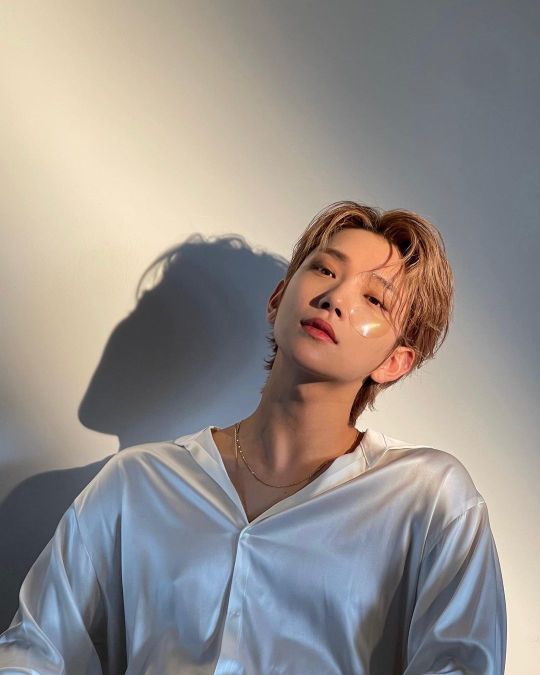

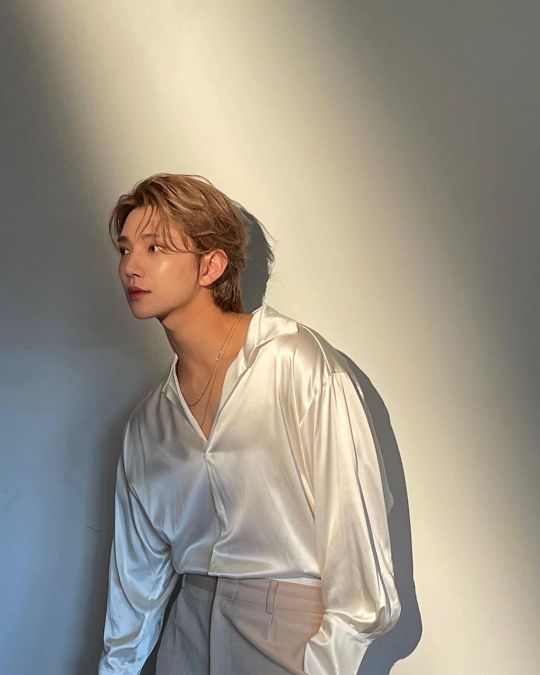
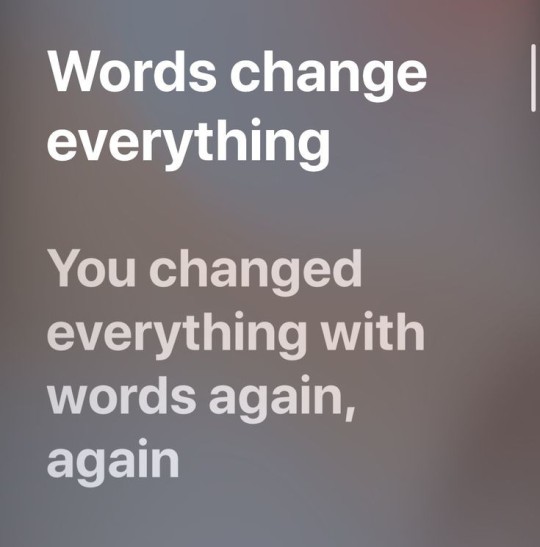

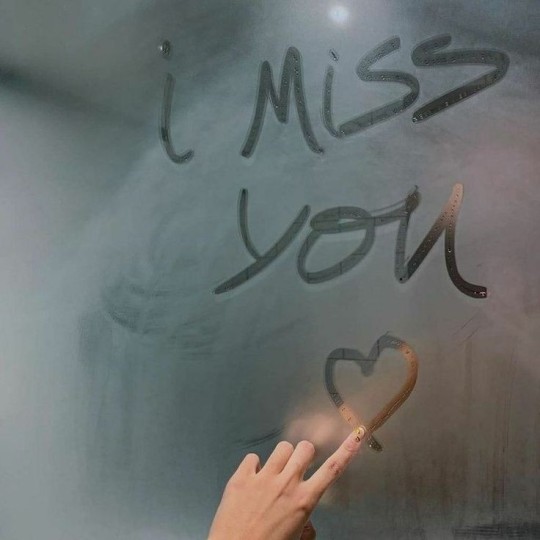

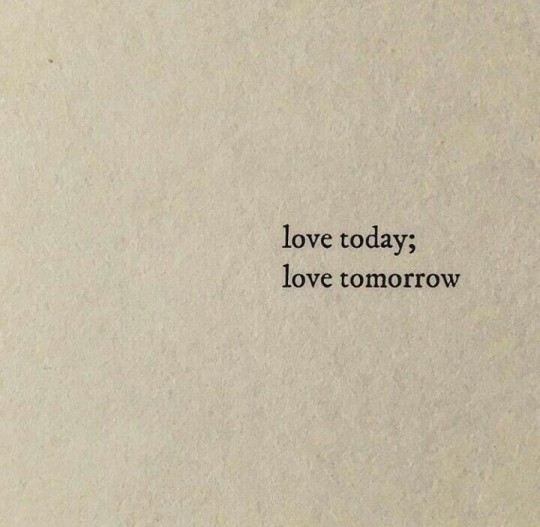
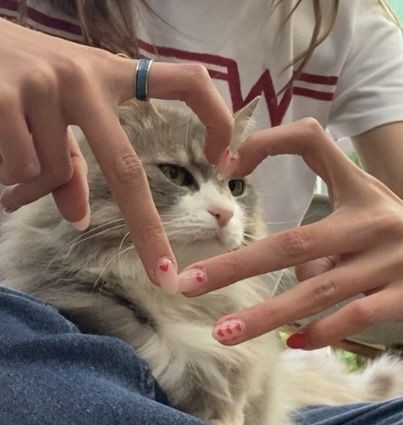
#joshua#moodboard#kpop#kpop moodboard#kpop icons#kpop layouts#messy moodboard#messycore#ulzzang#angel#angelcore#joshua svt#hong joshua#hong jisoo#seventeen#17#pledis#josh hong#josh seventeen
212 notes
·
View notes
Text
sO HONEY NOW COME IN TO MY ARMS YEAH 🫶🏼
#my favorite part#i love josh sm#i love my shuaberry!#joshua hong#seventeen#darling#jisoo hong#hong jisoo#seventeen jisoo#seventeen joshua#joshua icons#joshua#jisoo#carat#svt#kpop#jeonghan#seungkwan#the8#wonwoo#dk#hoshi#jun#scoups#vernon#woozi#mingyu#dino#face the sun#see the sun
33 notes
·
View notes
Text









SEVENTEEN HONG
JOSHOA
BETTER STREAM
DARLING DARLING
#pink twitter headers#aesthetic#kpop#joshua#shua#seventeen#icons#17#josh#hong jisoo#joshua hong#SoundCloud
18 notes
·
View notes
Text
૮ ˶ᵔ ᵕ ᵔ˶ ა / JOSHUA HONG GIF PACK

in the source link, you'll find #240 268 x 151 gifs of joshua hong from misc videos and interviews. josh was born in 1995 and is of korean descent so please cast accordingly. i made all these gifs from scratch, so please do not claim as your own. please do not crop into gif icons without my permission. i do not agree with the -/+ 5 year rule and please do not use my gifs for any taboo plots or rps. please like/reblog if you found these useful.
#joshua hong gif pack#joshua hong gif hunt#joshua hong#seventeen#seventeen gif pack#fcs#gif pack#content: mine#rph#rpt#underused fc#gif pack: mine#gifpacknetwork#fcxdirectory#gif hunt#gif packs#gifsociety#dearindies
53 notes
·
View notes
Text


THE GROUP
Very few coed groups can touch IDOLMAKER in fame, concept ambition and of course, number! Set under the managment of MBN Entertainment and japanese game developing studio FURTA since their conception in 2016, IDOLMAKER is a franchise like no other, setting their ever expanding roster of K-Pop Idols to voice act playable chracters in their sci-fi asymmetrical multiplayer survival game, Crewmaker Battle Universe. If that doesn't already make them unique enough, the group functions under a voting system, meaning comeback lineups and asthetics get voted on by their fans, MAXIs, via their official website.
IDOLMAKER, often shortned to IDMK, defies all odds and rumors of there being no such thing as healthy competition: united like a true dream team, with some people having ties going deeper then blood amongst them, they know that while stuck inside of a trancherous money empire like MBN, all they can really do is watch each other's backs and pray for the worse won't get them.

THE MEMBERS.

1st Gen - i. Yoo Eunhyuk. / ii. Jung Eunyoung. / iii. Hong Seunggi. / iv. Baek Yoojin; 2nd Gen - v. Yuthakon 'Ring' Chaiprasit. / vi. Lee Gayoung. / vii. Yang Taehyeon. / viii. Grace Elizabeth Lao; 3rd Gen - ix. Kim Hosung. / x. Kwon Dabin. / xi. Jeon Jeonghun. / xii. Cho Yejung. / 4th Gen - xiii. Im Daewon. / xiv. Yoneno Tomomi. / xv. Chuya Yuzuriha. / xvi. Nakashima Kina; 5th Gen - xvii. Kim Ilseong. / xviii. Julia Lee, Lee Haseon. / xix. Jang Wookjin. / xx. Tabitha Choi.

THE CONNECTIONS
LOOPiN - Colleges: While the bubblying romance between Seungsoo and Gayoung is what brings the two groups together, the friendship and music exchange between LOOPiN and IDMK is what keeps them all together. Seeing Dylan's growing necessity for friends outside of his band, Ring and Tabitha attempt to take him under their partying set of wings, not without it's fair share of complications. In order to get back on the good graces of his fleeting, long distance situationship with former Boy Of The Week member Kohei, Daewon attempts to reunite him with Haruki, his good pre-debut friend, as well as get to the bottom of who sabotaged him out of the project back on the day, and why.
NIGHT CHILD / NTCD - Rivals: With IDOLMAKER's company being a subsidiary of MBN, they've had one too many sour encounters with NTCD. Yongho has the nasty habit of never letting Seunggi, IDMK's main rapper and his once boyfriend, take a step without his consent now that they're reunited; Hyunbin's obsession on pursing Tomomi has tired her and every single one for her members beyond cooling down; Josh's rising influence over the innerworkings of the company reminds Hosung too much of his deceased and despised brother.
MBN'S GOLDEN AGE SENIORS (EXTENTH & SUNDATE) - Rivals: A misguided game of 'Senior Romance Speedrun' with the founding groups of MBN, EXTENTH and SUNDATE, has left the majority of the IDOLMAKER members heartbroken, embarrassed and more importantly, pissed off. Still, Julia ignores the years of historical battles between the two as she finds herself in the middle of an office affair with SUNDATE's golden girl, Park Suhyun - a desperate attempt to subside her intese feelings for her icon, Yoojin. Little does she knows, she's not the only IDMK member that she's secretly trailing along. Recently discharged from the military, Grace's never forgotten first love and ex-boyfriend, EXTENTH's Changmin, asks her once for her hand in marriage, as well as for Grace to retire from daunting Idol life with him.
[REDCATED] - ???: After [REDACTED], a private country club in center Seoul -- one that deems itself as a 'place for connection between former child stars' -- gets a grip hold of Taehyeon, suspicion of their members real intensions, motivations and face of leadership rises in Eunyoung and Yuzuriha. A spiralling Hosung takes dangerous inspiration in [REDACTED]'s 'detachment' and 'healing' methods, to Dabin and Jeonghun's utter horror.
#&& ⠀ [ . . . ] we bite and scratch and scream all night ⠀⸻ idolmaker .#fake kpop group#fictional idol community#kpop fanfic#kpop oc
22 notes
·
View notes
Text
When the universe, Disney Imagineers, and a bit of Elsa's ice magic combined to bring a story from Frozen director Jennifer Lee's mind into reality, she had to let her emotions go, as the filmmaker exclusively tells EW that setting foot inside Hong Kong Disneyland's immersive World of Frozen land for the first time had her fighting back "literal tears" of pure joy — all amid an announcement that Frozen 3 and 4 are simultaneously in the works.
"I think beyond, because I hear there's more room, because I'm like, 'You're going to need it," Lee teases when asked where fans should look to find clues about Frozen 3 inside World of Frozen. "There's a lot more story coming."
The result of their collaboration is both a nod to the last decade of Frozen fever (complete with returning voice actors who recorded new lines for the attraction, namely Josh Gad as snowman Olaf and Jonathan Groff as Kristoff), as well as a look to the series' ever-evolving potential future — including an overarching message of inclusivity and shared joy exemplified by a brief (but no less effective) change in the iconic lyrics to "Let It Go" inside Frozen Ever After.
9 notes
·
View notes
Text
Michelle Yeoh: “We mustn’t take our foot off the pedal”
‘Everything’ Is Set For Michelle Yeoh, SAG’s Newly-Crowned Best Actress Winner, But “We Mustn’t Take Our Foot Off The Pedal” (deadline.com)
by Joe Utichi
March 1, 2023 9:02am
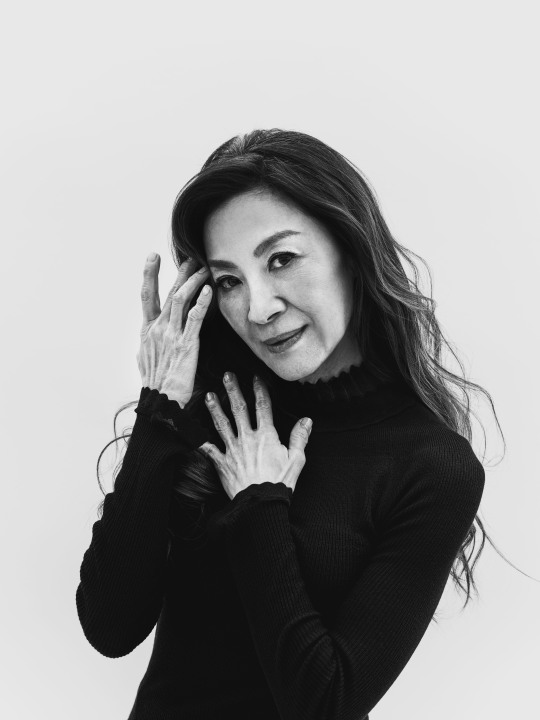
( Michelle Yeoh shot exclusively for Deadline by Josh TellesJosh Telles/Deadline)
Michelle Yeoh’s mother is a worrier. Janet Yeoh has spent the past four decades watching her wildest dreams for her daughter come true. She has witnessed her ascent from Hong Kong action heroine to Oscar-nominated international icon. But when she saw Everything Everywhere All at Once — the film that has brought Michelle Yeoh the best reviews of her career, and that landed her an Oscar nomination for Best Actress, breaking new ground for Southeast Asian performers — Janet had one main reaction: “Why do you have to look so old?”
“She still treats me like I’m six,” laughs Michelle Yeoh, settling into lunch at a Michelin-starred eatery in London and looking every bit as chic as she does at any red-carpet event. A superficial observation it feels important to include when Yeoh adds that if her mother could see her now, she’d almost certainly say to her, “Did you comb your hair? Why don’t you put on some make-up, and wear a nicer dress?”
“If we were back home right now, she would have laid some clothes out for me,” Yeoh says. “It’s how she shows love.”
It might be this universal truth of motherhood that has made Everything Everywhere All at Once — a multiverse-bouncing treatise on complicated family dynamics from directors Daniel Scheinert and Daniel Kwan — such an unlikely awards frontrunner. Yeoh’s character Evelyn has such a tenuous relationship with her daughter Joy (Stephanie Hsu), that in some obscure alternate universe, an even more extremely dispirited version of Joy called Jobu Tupaki would rather dispatch with all known existence than endure any more of her mother’s misunderstanding.
But what Joy can’t comprehend about Evelyn is that her mother worries because she wants nothing less for her daughter than the best possible life. Her definition of what that looks like may have to change, but Evelyn Wang is a true warrior for her family. “Moms are the real superheroes,” says Yeoh. “They carry the weight of the world on their shoulders every day. So many women do that. They march on steadfastly, but nobody ever gives them the superhero cape.”

(With Stephanie Hsu and Ke Huy Quan in Everything Everywhere All at Once / A24)
One of the amazing details about this whole thing is that Yeoh probably wouldn’t have had the career that she does if her mother hadn’t forged her signature on the Miss Malaysia World application.
7 notes
·
View notes
Text



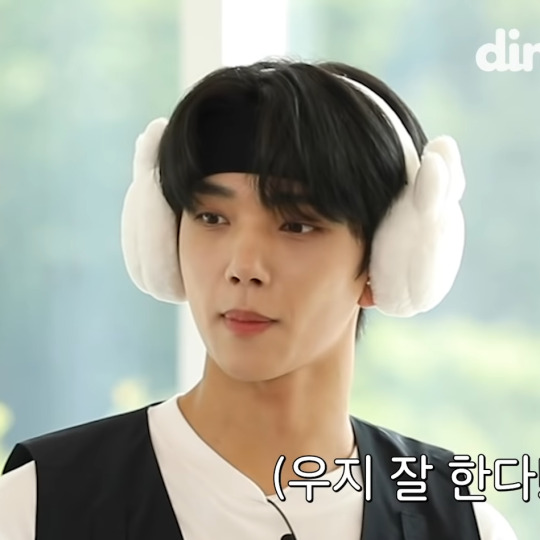

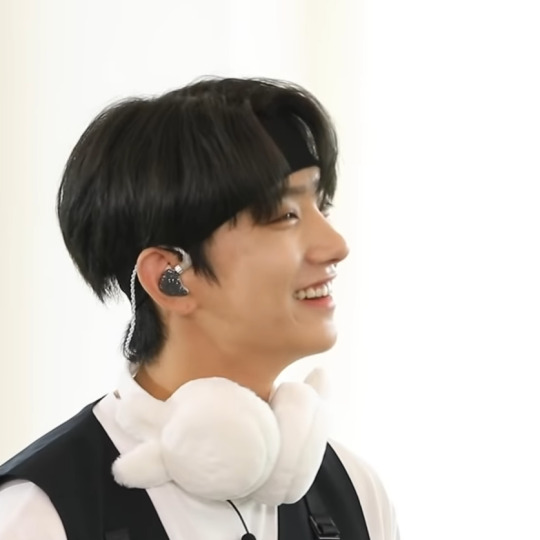

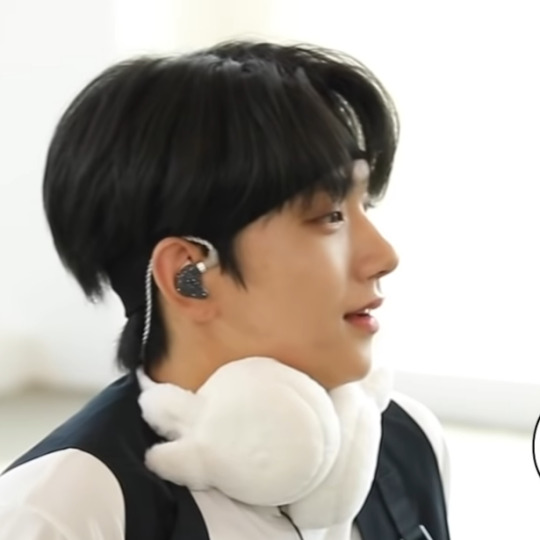

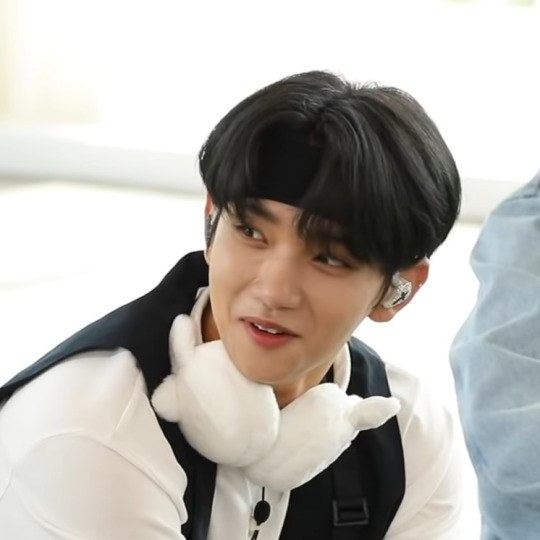
Hong Jisoo icons
— Like or reblog if you save, don’t repost.
#hong jisoo icons#hong jisoo#seventeen jisoo#jisoo icons#jisoo#jisoo edits#jisoo moodboard#joshua hong icons#seventeen joshua#joshua icons#joshua hong#joshua#shua icons#shua#svt joshua#joshua svt#svt jisoo#joshua imagines#josh icons#seventeen headers#seventeen icons#seventeen gif#seventeen#svtgifs#svt icons
131 notes
·
View notes
Photo




shua bday icons (*˘︶˘*).。.:*♡
#shua#joshua#josh#jisoo#hong jisoo#seventeen#seventeen edits#shua day#seventeen icons#svt#svt edits#svt icons#joshua edits#joshua icons#shua edits#shua icons#bday#bday icons#kpop#kpop icons
10 notes
·
View notes
Photo



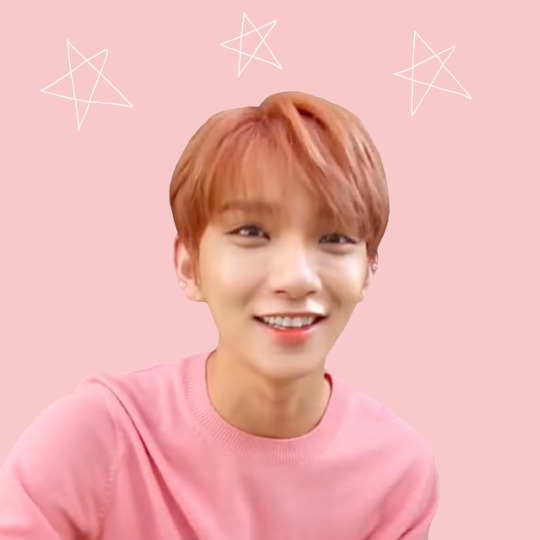
☆ rose quartz and serenity joshua icons ☆
please like/reblog if you save/use!!
#happy josh day#its been like ten minutes since it ended here#but i wanted to do this while it was still his bday in korea#theyre kIND of crap but i rlly wanted to make them for his bday and i was in a rush okay#joshua icons#joshua hong icons#jisoo icons#hong jisoo icons#joshua icon#joshua hong icon#jisoo icon#hong jisoo icon#seventeen icons#seventeen icon#svt icons#svt icon#kpop icons#kpop icon#my icons#happy joshua day
13 notes
·
View notes
Photo


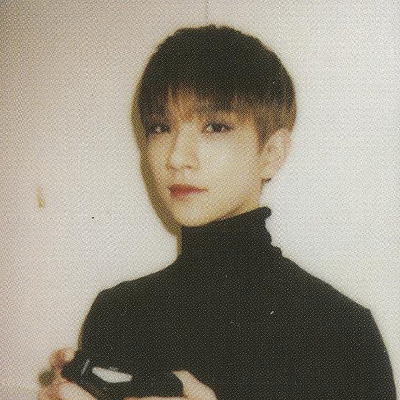

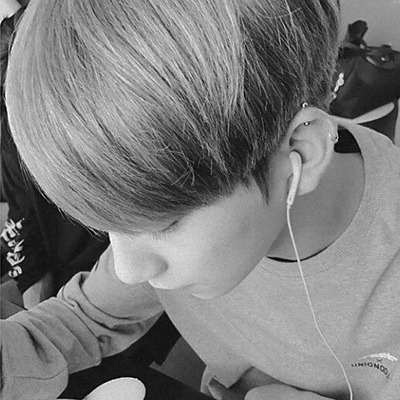


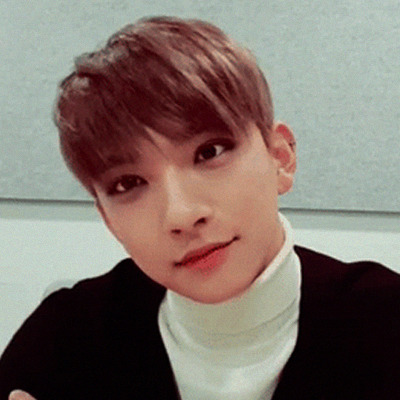
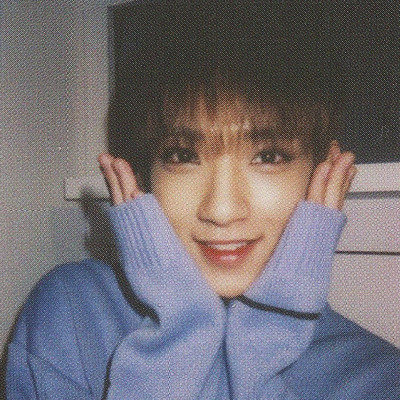
©belletheworld like/reblog if you save.
don’t repost.
#jisoo icons#hong jisoo icons#joshua icons#joshua hong icons#josh icons#seventeen icons#svt icons#17 icons#seventeen#svt#joshua hong#hong jisoo
17 notes
·
View notes
Text
Favourite films watched in 2020
In no particular order:
Katalin Varga (Peter Strickland, 2009)
The Gleaners and I (Les Glaneurs et la glaneuse, Agnès Varda, 2000)
Land of Silence and Darkness (Land des Schweigens und der Dunkelheit, Werner Herzog, 1971)
Post Tenebras Lux (Carlos Reygadas, 2012)
The Return (Возвращение, Andrey Zvyaginstev, 2003)
The Grand Bizarre (Jodie Mack, 2018)
Transnistra (Anna Eborn, 2019)
Ghost Town Anthology (Répertoire des villes disparues, Denis Côté, 2019)
The Petrified Forest (Archie Mayo, 1936)
Viy (Вий, Georgiy Kropachyov & Konstantin Ershov, 1967)
Complete list of all 323 films watched in 2020 under the cut!
January
Angus, Thongs and Perfect Snogging (Gurinder Chadha, 2008)
Blade (Steven Norrington, 1998)
Who Among Us! (Abhishek Prasad and Rebecca Kahn, 2019)
Brotherhood (Meryam Joobeur, 2018)
Disctrict 9 (Neill Blomkamp, 2009)
Hair Love (Matthew A. Cherry and Karen Rupert Toliver, 2019)
Kitbull (Rosana Sullivan, 2019)
Sister (妹妹, Siqi Song, 2019)
Nuts! (Penny Lane, 2016)
The Judge (Erika Cohn, 2017)
The Ghosts of Sugar Land (Bassam Tariq, 2019)
Amazonia (Dominic Hicks, 2018)
Dearborn Ash (Hena Ashraf, 2018)
Pineal (Jenny Rinta-Kanto, 2019)
Headcleaner (Nick Scott, 2019)
Rattlesnake (Zak Hilditch, 2019)
The Neon Demon (Nicolas Winding Refn, 2016)
Skin (Audrey Rosenberg, 2018)
The Banishment (Изгнание, Andrey Zvyagintsev, 2007)
F is for Friendship (Shaya Mulcahy, 2016)
Paradise Hills (Alice Waddington, 2019)
Road House (Rowdy Herrington, 1989)
Hustlers (Lorene Scafaria, 2019)
I Believe in Unicorns (Leah Meyerhoff, 2014)
Ghost Train (Lee Cronin, 2014)
Troop Zero (Bert & Bertie, 2019)
For the Love of God (Pour l'Amour de Dieu, Micheline Lanctôt, 2011)
February
Sitting Next to Zoe (Ivana Lalović, 2013)
Dark Places (Gilles Paquet-Brenner, 2015)
Nocturnal Animals (Tom Ford, 2016)
The Limey (Steven Soderbergh, 1999)
Side Effects (Steven Soderbergh, 2013)
Good Sam (Kate Melville, 2019)
Anima (Paul Thomas Anderson, 2019)
What Did Jack Do? (David Lynch, 2017)
Fleur de tonnerre (Stéphanie Pillonca, 2016)
Parasite (Bong Joon-ho, 2019)
The Field Guide to Evil (Peter Strickland, Veronika Franz & Severin Fiala, Katrin Gebbe, Yannis Veslemes, Ashim Ahluwalia, Agnieszka Smoczynska, Can Evrenol, Calvin Reeder, 2018)
Devil (John Eric Dowdle, 2010)
37 Seconds (Hikari, 2019)
The Falling (Carol Morley, 2014)
Grave of the Fireflies (火垂るの墓, Hotaru no Haka, Isao Takahata, 1988)
Elena (Елена, Andrey Zvyagintsev, 2011)
The Lighthouse (Robert Eggers, 2019)
Baskin (Can Evrenol, 2015)
In Fabric (Peter Strickland, 2018)
Leviathan (Левиафан, Andrey Zvyagintsev, 2014)
Suffragette (Sarah Gavron, 2015)
March
The East (Zal Batmanglij, 2013)
Solaris (Солярис, Andrei Tarkovsky, 1972)
Mamma Mia! (Phyllida Lloyd, 2008)
There Will Be Blood (Paul Thomas Anderson, 2007)
Io (Jonathan Helpert, 2019)
The Death and Life of Marsha P. Johnson (David France, 2017)
A Bump Along the Way (Shelly Love, 2019)
Color Out of Space (Richard Stanley, 2019)
Divines (Houda Benyamina, 2016)
Vanishing Waves (Kristina Buožytė, 2012)
Mirror (Зеркало, Andrei Tarkovsky, 1975)
Zama (Lucrecia Martel, 2017)
Swallow (Carlo Mirabella-Davis, 2019)
Joy (Sudabeh Mortezai, 2018)
Good Time (Josh and Benny Safdie, 2017)
Quarantine (John Eric Dowdle, 2008)
The Reflecting Skin (Philip Ridley, 1990)
Three Billboards Outside Ebbing, Missouri (Martin McDonagh, 2017)
Leto (Лето, Kirill Serebrennikov, 2018)
The 39 Steps (Alfred Hitchcock, 1935)
April
Queen of Earth (Alex Ross Perry, 2015)
Black Christmas (Sophia Takal, 2019)
Dogs of Chernobyl (Léa Camilleri & Hugo Chesnel, 2020)
Firecrackers (Jasmin Mozaffari, 2018)
Les Misérables (Ladj Ly, 2019)
The Evil Dead (Sam Raimi, 1981)
The Daughters of Fire (Las hijas del fuego, Albertina Carri, 2018)
The Fallen Idol (Carol Reed, 1948)
The Wailing (곡성, Gokseong, Na Hong-jin, 2016)
Inherent Vice (Paul Thomas Anderson, 2014)
Sorrowful Shadow (Guy Maddin, 2004)
Mistery Lonely (Harmony Korine, 2007)
The Grand Bizarre (Jodie Mack, 2018)
Zombieland: Double Tap (Ruben Fleischer, 2019)
Waves '98 (Ely Dagher, 2015)
Uncut Gems (Josh and Benny Safdie, 2019)
The Last Séance (Laura Kulik, 2018)
Too Late to Die Young (Tarde para morir joven, Dominga Sotomayor Castillo, 2018)
Room (Lenny Abrahamson, 2015)
Queen & Slim (Melina Matsoukas, 2019)
The Holy Mountain (La montaña sagrada, Alejandro Jodorowsky, 1973)
The Chaser ( 추격자, Chugyeokja, Na Hong-jin, 2008)
Made in Dagenham (Nigel Cole, 2010)
The Color of Pomegranates (Նռան գույնը, Nřan guynə, Sergei Parajanov, 1969)
Lost Girls (Liz Garbus, 2020)
Ghost Town Anthology (Répertoire des villes disparues, Denis Côté, 2019)
And Then There Were None (René Clair, 1945)
Doctor Sleep (Mike Flanagan, 2019)
Meshes of the Afternoon (Maya Deren and Alexander Hammid, 1943)
Circus of Books (Rachel Mason, 2019)
Catfish (Henry Joost and Ariel Schulman, 2010)
Wildling (Fritz Böhm, 2018)
Delphine (Chloé Robichaud, 2019)
The Strange Love of Martha Ivers (Lewis Milestone, 1946)
The Red Balloon (Le Ballon rouge, Albert Lamorisse, 1956)
Nona. If They Soak Me, I’ll Burn Them (Nona. Si me mojan, yo los quemo, Camila José Donoso, 2019)
The Lodge (Veronika Franz & Severin Fiala, 2019)
Invisible Man (Leigh Whannell, 2020)
Sans Soleil (Chris Marker, 1983)
May
A Russian Youth (Мальчик русский, Alexander Zolotukhin, 2019)
Sicario (Denis Villeneuve, 2015)
Fedora (Billy Wilder, 1978)
LoveTrue (Alma Har'el, 2016)
The Platform (Galder Gaztelu-Urrutia, 2019)
Water Lilies (Naissance des pieuvres, Céline Sciamma, 2007)
The Assistant (Kitty Green, 2019)
The Half of It (Alice Wu, 2020)
Tomboy (Céline Sciamma, 2011)
The Last Man on Earth (Ubaldo Ragona and Sidney Salkow, 1964)
Beanpole (Дылда, Kantemir Balagov, 2019)
Mommy (Xavier Dolan, 2014)
The Fall (Jonathan Glazer, 2020)
Girlhood (Bande de filles, Céline Sciamma, 2014)
Carnival of Souls (Herk Harvey, 1962)
Marguerite & Julien (Valérie Donzelli, 2015)
Portrait of a Lady on Fire (Portrait de la jeune fille en feu, Céline Sciamma, 2019)
This Magnificent Cake! (Ce Magnifique Gâteau!, Emma De Swaef & Marc James Roels, 2018)
Romantic Comedy (Elizabeth Sankey, 2019)
Transnistra (Anna Eborn, 2019)
Eraserhhead (David Lynch, 1977)
The Farewell (Lulu Wang, 2019)
Emma. (Autumn de Wilde, 2020)
Late Night (Nisha Ganatra, 2019)
Charlie's Angels (Elizabeth Banks, 2019)
Birds of Prey (and the Fantabulous Emancipation of One Harley Quinn) (Cathy Yan, 2020)
The Ancestors Came (Cecile Emeke, 2017)
Suicide by Sunlight (Nikyatu Jusu, 2019)
Anthropocene: The Human Epoch (Edward Burtynsky, Jennifer Baichwal, Nicholas de Pencier, 2018)
A Perfect 14 (Giovanna Morales Vargas, 2018)
Westwood: Punk, Icon, Activist (Lorna Tucker, 2018)
Free Radicals (Len Lye, 1958)
Aniara (Pella Kågerman and Hugo Lilja, 2018)
Vivarium (Lorcan Finnegan, 2019)
La Pointe-Courte (Agnès Varda, 1955)
Diary of a Pregnant Woman (L'Opéra-Mouffe, Agnès Varda, 1958)
Salut les Cubains (Agnès Varda, 1964)
Uncle Yanco (Oncle Yanco, Agnès Varda, 1967)
GUO4 (Peter Strickland, 2019)
Atlantiques (Mati Diop, 2009)
Sitara: Let Girls Dream (Sharmeen Obaid-Chinoy, 2019)
Lions Love (Lions Love... And Lies, Agnès Varda, 1969)
Živan Makes a Punk Festival (Živan pravi pank festival, Ognjen Glavonić, 2014)
Plastic and Glass (Tessa Joosse, 2009)
The So-Called Caryatids (Les Dites Cariatides, Agnès Varda, 1984)
The Octopus (La Pieuvre, Jean Painlevé, 1928)
Hyas and Stenorhynchus (Hyas et sténorinques, crustacés marins, Jean Painlevé, 1929)
Sea Urchins (Les Oursins, Jean Painlevé, 1929)
Bernard-L'Hermite (Bernard-l'Ermite, Jean Painlevé, 1930)
The Sea Horse (L'Hippocampe ou "cheval marin", Jean Painlevé, 1934)
Voyage to the Sky (Voyage dans le ciel, Jean Painlevé, 1937)
Le Vampire (Jean Painlevé, 1945)
Freshwater Assassins (Assassins d'eau douce, Jean Painlevé, 1947)
How Some Jellyfish Are Born (Comment naissent des méduses, Jean Painlevé and Geneviève Hamon, 1960)
Shrimp Stories (Histoires de crevettes, Jean Painlevé and Geneviève Hamon, 1964)
The Love Life of the Octopus (Les Amours de la pieuvre, Jean Painlevé and Geneviève Hamon, 1965)
Acera, or The Witches' Dance (Acera, ou le Bal des Sorcières, Jean Painlevé and Geneviève Hamon, 1972)
Pigeons of the Square (Les Pigeons du square, Jean Painlevé, 1982)
The Slumber Party Massacre (Amy Holden Jones, 1982)
Jane B. par Agnès V. (Agnès Varda, 1988)
The Cranes Are Flying (Летят журавли, Mikhail Kalatozov, 1957)
Crystal Swan (Хрусталь, Darya Zhuk, 2018)
Take Me Somewhere Nice (Ena Sendijarević, 2019)
Microhabitat ( 소공녀, Jeon Go-woon, 2017)
The Unforeseen (Laura Dunn, 2007)
June
Funny Games (Michael Haneke, 1997)
Louise Bourgeois: The Spider, the Mistress and the Tangerine (Marion Cajori and Amei Wallach, 2008)
Wodaabe: Herdsmen of the Sun (Werner Herzog, 1989)
Bells from the Deep: Faith and Superstition in Russia (Glocken aus der Tiefe - Glaube und Aberglaube in Russland, Werner Herzog, 1993)
We Are the Best! (Vi är bäst!, Lukas Moodysson, 2013)
Olla (Ariane Labed, 2019)
Return to Reason (Le Retour à la raison, Man Ray, 1923)
Ghosts Before Breakfast (Vormittagsspuk, Hans Richter, 1928)
Sissy Boy Slap Party (Guy Maddin, 2004)
The Republic of Enchanters (La République des enchanteurs, Fanny Liatard and Jérémy Trouilh, 2016)
Sullivan's Banks (Sullivans Banken, Heinz Emigholz, 2000)
Black Panthers (Agnès Varda, 1970)
Asparagus (Suzan Pitt, 1979)
America (Valérie Massadian, 2013)
The Fall (Tarsem Singh, 2006)
The Watermelon Woman (Cheryl Dunye, 1996)
Douce Menace (Ludovic Habas, Yoan Sender, Margaux Vaxelaire, Mickaël Krebs, Florent Rousseau, 2011)
Curling (Denis Côté, 2010)
Trouble Every Day (Claire Denis, 2001)
The Return (Возвращение, Andrey Zvyaginstev, 2003)
Maillart's Bridges (Maillarts Brücken, Heinz Emigholz, 2000)
Two Years at Sea (Ben Rivers, 2011)
The Creeping Garden (Tim Grabham and Jasper Sharp, 2014)
Homo Sapiens (Nikolaus Geyrhalter, 2016)
A Radiant Life (Une Vie radieuse, Meryll Hardt, 2013)
Shirley (Josephine Decker, 2020)
Disclosure (Sam Feder, 2020)
Baghead (Mark Duplass and Jay Duplass, 2008)
Lahemaa (Leslie Lagier, 2010)
Closeness (Теснота, Kantemir Balagov, 2017)
Touki Bouki (Djibril Diop Mambéty, 1973)
Daughter (Dcera, Daria Kashcheeva, 2019)
Human Nature (Sverre Fredriksen, 2019)
1 Dimension (一维, Lü Yue, 2013)
July
Post Tenebras Lux (Carlos Reygadas, 2012)
Something to Remember (Något Att Minnas, Niki Lindroth Von Bahr, 2019)
Gegenüber (Ewa Wikiel, 2019)
The Claudia Kishi Club (Sue Ding, 2020)
Villa Empain (Katharina Kastner, 2019)
Fata Morgana (Werner Herzog, 1971)
Some Like It Hot (Billy Wilder,1959)
Breakwater (Quebramar, Cris Lyra, 2019)
Y a-t-il une vierge encore vivante? (Bertrand Mandico, 2015)
Virus Tropical (Santiago Caicedo, 2017)
The Tribe (Племя, Miroslav Slaboshpitsky, 2014)
Integration Report 1 (Madeline Anderson, 1960)
Tribute to Malcolm X (Madeline Anderson, 1967)
August
The Stopover (Voir du pays, Delphine and Muriel Coulin, 2016)
Our Time (Nuestro Tiempo, Carlos Reygadas, 2018)
Never Rarely Sometimes Always (Eliza Hittman, 2020)
Land of Silence and Darkness (Land des Schweigens und der Dunkelheit, Werner Herzog, 1971)
Continental, a Film Without Guns (Continental, un film sans fusil, Stéphane Lafleur, 2007)
Spaceship Earth (Matt Wolf, 2020)
The Go-Go's (Alison Ellwood, 2020)
First Cow (Kelly Reichardt, 2019)
Light of My Life (Casey Affleck, 2019)
Wadjda (Haifaa al-Mansour, 2012)
Spinster (Andrea Dorfman, 2020)
Love and Anarchy (Film d'amore e d'anarchia, ovvero: stamattina alle 10, in via dei Fiori, nella nota casa di tolleranza..., Lina Wertmüller, 1973)
Shapito Show (Шапито шоу, Sergey Loban, 2011)
Charade (Stanley Donen, 1693)
Cat People (Jacques Tourneur, 1942)
Radioactive (Marjane Satrapi, 2019)
Tabloid (Errol Morris, 2010)
The Mourning Forest ( 殯の森, Mogari No Mori, Naomi Kawase, 2007)
Lilya 4-ever (Lilja 4-ever, Lukas Moodysson, 2002)
September
The Nightingale (Jennifer Kent, 2018)
Babyteeth (Shannon Murphy, 2019)
Let the Corpses Tan (Laissez bronzer les cadavres, Hélène Cattet & Bruno Forzani, 2017)
Wings of Desire (Der Himmel über Berlin, Wim Wenders, 1987)
In My Room (Mati Diop, 2020)
Katalin Varga (Peter Strickland, 2009)
Les 3 Boutons (Agnès Varda, 2015)
Somebody (Miranda July, 2014)
Öndög (Wang Quan'an, 2019)
Strasbourg 1518 (Jonathan Glazer, 2020)
Mermaid (Русалка, Anna Melikyan, 2007)
The Lighthouse (Маяк, Maria Saakyan, 2006)
Phenomena (Dario Argento, 1985)
That One Day (Crystal Moselle, 2016)
Brigitte (Lynne Ramsay, 2019)
The Wedding Singer's Daughter (Haifaa al-Mansour, 2018)
Shako Mako (Hailey Gates, 2019)
Carmen (Chloë Sevigny, 2017)
The Summer of Sangailė (Sangailės Vasara, Alanté Kavaïté, 2015)
Hello Apartment (Dakota Fanning, 2018)
Seed (Naomi Kawase, 2016)
Beyond the Visible: Hilma af Klint (Halina Dyrschka, 2019)
Matthias & Maxime (Xavier Dolan, 2019)
The Gleaners and I (Les Glaneurs et la glaneuse, Agnès Varda, 2000)
October
American Murder (Jenny Popplewell, 2020)
Hereditary (Ari Aster, 2018)
Ghostland (Pascal Laugier, 2018)
Triangle (Christopher Smith, 2009)
The Amityville Horror (Stuart Rosenberg, 1979)
The Visit (M. Night Shyamalan, 2015)
The House of the Devil (Ti West, 2009)
Misery (Rob Reiner, 1990)
The Exorcist (William Friedkin, 1973)
Coherence (James Ward Byrkit, 2013)
Metamorphosis (변신, Kim Hong-sun, 2019)
Errementari (Paul Urkijo Alijo, 2017)
I Am a Ghost (H.P. Mendoza,2012)
The Changeling (Peter Medak, 1980)
Witching and Bitching (Las Brujas de Zugarramurdi, Álex de la Iglesia, 2013)
Thirst (박쥐, Park Chan-wook, 2009)
V/H/S ( Adam Wingard, David Bruckner, Ti West, Glenn McQuaid, Joe Swanberg, Radio Silence, 2012)
The Autopsy of Jane Doe (André Øvredal, 2016)
Overlord (Julius Avery, 2018)
Häxan (Benjamin Christensen, 1922)
Viy (Вий, Georgiy Kropachyov & Konstantin Ershov, 1967)
Amulet (Romola Garai, 2020)
A Bucket of Blood (Roger Corman, 1959)
The Wasp Woman (Roger Corman, 1959)
Mother! (Darren Aronofsky, 2017)
Suspiria (Dario Argento, 1977)
The Open House (Matt Angel, Suzanne Coote, 2018)
November
The Damned Don't Cry (Vincent Sherman, 1950)
Notorious (Alfred Hitchcock, 1946)
While the City Sleeps (Fritz Lang, 1956)
The Man Who Wasn't There (Joel Coen, 2001)
The Naked City (Jules Dassin, 1948)
The Petrified Forest (Archie Mayo, 1936)
Croupier (Mike Hodges, 1998)
In a Lonely Place (Nicholas Ray, 1950)
Elevator to the Gallows (Ascenseur pour l'échafaud, Louis Malle, 1958)
Key Largo (John Huston, 1948)
Dial M for Murder (Alfred Hitchcock, 1954)
The Long Farewell (Долгие проводы, Kira Muratova, 1971)
The Killers (Robert Siodmak, 1946)
Gun Crazy (Joseph H. Lewis, 1950)
Alphaville (Jean-Luc Godard, 1965)
Laura (Otto Preminger, 1944)
The Third Man (Carol Reed, 1949)
Dark City (Alex Proyas, 1998)
Night and the City (Jules Dassin, 1950)
Ace in the Hole (Billy Wilder, 1951)
December
Nimic (Yorgos Lanthimos, 2020)
Elsa la rose (Agnès Varda, 1966)
Le Bonheur (Agnès Varda, 1965)
Little Girl (Petite Fille, Sébastien Lifshitz, 2020)
Cold Meridian (Peter Strickland, 2020)
The Fiancés of the Bridge Mac Donald (Les Fiancés du Pont Mac Donald ou (Méfiez-vous des Lunettes Noires)) (Agnès Varda, 1961)
Along the Coast (Du côté de la côte, Agnès Varda, 1958)
Vic + Flo Saw a Bear (Vic + Flo ont vu un ours, Denis Côté, 2013)
Zootopia (Byron Howard, Rich Moore, 2016)
It's a Wonderful Life (Frank Capra, 1946)
Paddington (Paul King, 2014)
Miracle on 34th Street (George Seaton, 1947)
High Life (Claire Denis, 2018)
Paddington 2 (Paul King, 2017)
16 notes
·
View notes
Text
My thoughts about Godzilla vs. Kong (a bit spoiler so be warned)
Ever since I have a memory, I’ve been a fan of the giant monster or mecha genre. Maybe it was because of shows like Power Rangers, Ultraman, Mazinger Z, Gundam, the Red Baron, Voltron or the movies such as Godzilla, Mothra, Pacific Rim and Cloverfield (the first one).
One of my fav movies of course, was King Kong vs. Godzilla from 1962. It was silly, yes but the hype of that time made it a very memorable movie and plus, it was the very first time we saw these two in full color. The ending of the movie was very debatable of course, considering who was the winner depending on the theatrical release. One would say it was a draw, other people would say Kong won but in the end, the movie did their objective: Entretain.
With the recent Monsterverse from Legendary Studios, we got a fresh new start with Gareth Edward’s “Godzilla” that re-introduced the iconic giant lizard in the western market, althought the film itself focused more in the human side, it appeared a few scenes here and there. This of course was a praise from the critics for the drama but became a bit of dissapointment towards the fans who wanted more monster fights.
After that, we got Vogt-Roberts “Kong: Skull Island” that became a new adaptation of the RKO Pictures monster that became such an interesting character. The last of his species, a literal child, ruler of the island faces the invasion of humans while also dealing with a deadly race of monsters while also connecting the dots with Godzilla.
My fav movie of this whole saga then appeared: “Godzilla King of the Monsters”, which was directed by Michael Dougherty and presented new human characters but also 3 more iconic monsters from Toho: Mothra, Rodan and the big bad yellow dragon, King Ghidorah. Tons of action and fighting but also, giving us some uninteresting characters and humor. This is a very good movie to introduce someone to this genre.
But it all comes down to this movie. After almost 59 years we see these two iconic movie monsters beating each other once again in a new story that probably was in the making for a long time. According to the director, Adam Wingard, we are going to see truly a winner and a loser but who it is? I’m not gonna say it YET, but he was true to his word.
The movie fulfills it’s objective which is, once again, entretain. It’s not a perfect movie worthy of an Oscar, that’s for sure. But they want to put a good example of crossover unlike a certain superhero movie (Batman v Superman) and tend to focus in the action, the fights scenes and the designs while trying to keep the plot relevant. It’s worthy to mention that also gives references to the previous movies and even to the original movie.
As I always do, I’m now going to mention the good and bad things of this movie:
The Good:
- Fights: It’s no suprise that these were the stronger points and the base of the movie We have 4 fights overall (even though one more but its like super short) that have great shots and sequences. My fav overall was the Hong Kong fight with lot of colors and lights even if it was during the night!
- Jia: She was a really adorable character that had a special connection to Kong. I loved how she represents the concept of hope in the movie by always believing in his giant fluffy friend but also looking upon her family and wanting the best to all.
- Kong: We all can agree that he is the main monster in this movie. We see him more and he has such a long journey and character development from being at first, the last of his species and ruler of the Skull Island to trying to discover more about his race and becoming someone worthy.
- Godzilla: Even though we don’t see much of the King of the Monsters, he still imposes power and destruction but also balance. Wants to be the top of the food chain and will fight anyone who tries to pose a threat not only to himself but to the planet.
- MechaGodzilla: Would this be considered a spoiler even if we saw the final trailer that show it? As per tradition to the source material, this Mecha is basically the antagonist of the movie and imposes a big threat to everyone not only to the Titans. Dangerous and powerful, the design was also very menacing and I loved it.
- More into the lore: The concept of the Hollow Earth started in Godzilla King of the Monster but wasn’t fully explored. This movie decides to help it by showing us more of it while also explaining us whatever happened to the other Titans and the Skull Island status.
- A statement of who is the strongest: As I mentioned, the director made sure that there was a clear winner and it shows us that was, in fact, Godzilla. Even though the match was balanced with Kong getting his weapon, the big lizard had one more suprise. In the end both Titans got each other’s respect but clearly considering Godzilla as the winner.
The Bad:
- Unnecesary characters: This applies to some of the humans in the story like Josh that, in my opinion, did not contribute anything to the story but lame comedy. If you skip his scenes, the movie just goes on like nothing happened. In the case of Maia Simmons, she had a lot of potential for a future movie and I loved the actress doing a good job as a douchy boss yet sadly her story becomes short and wasted.
- Lacking of plot: This is something that bothered me a lot and was that some characters or part of the plot lacked explanation. Example: We don’t truly know why Ren Serizawa allies himself with the antagonists. Does he have a grude against Godzilla? Does he believe humankind must be the superior race? Nothing. Also what happened to the other Titans? We just see in the intro that Godzilla simply “defeated” them. We don’t see Rodan or know anything about the Mothra egg. They just simply disseapared.
#Godzilla vs Kong#Godzilla#Kong#King Kong#Gojira#Monsterverse#Movie#films#Kaiju#review#King Kong vs. Godzilla#Titans
4 notes
·
View notes
Text
Infernal Affairs (2002) and Space Jam: A New Legacy (2021)
Nyeaaaaahhhhh.... What's up, Kanines? After only a week of release, we tackle the new cynical cash-grab.... er.... "movie", in the Space Jam franchise, and compare it to the film that inspired Marty Scorcese's The Departed, an iconic Hong Kong action film called Infernal Affairs. They are the same movie! That's it, that's the podcast.
We also talk about what we know of the sport of basketball, Hong Kong cinema, memes, and we try and list every piece of Warner Bros. owned IP featured in the Space Jam movie.
Find us on Twitter, Instagram and Letterboxd @fromjustin2kane
email us at [email protected]
Artwork by Josh Holinaty: http://www.holinaty.com
Music by Doug Hoyer: http://www.doughoyer.com
#fromjustintokane #podcast
Additional music:
"Bossa Antigua" Kevin MacLeod (incompetech.com)
Licensed under Creative Commons: By Attribution 3.0
http://creativecommons.org/licenses/by/3.0/
Check out this episode!
1 note
·
View note
Text
Batman: Soul of the Dragon – Bringing a Little Bruce Lee to Bruce Wayne’s World
https://ift.tt/eA8V8J
This article contains Batman: Soul of the Dragon spoilers.
The latest DC animated film Batman: Soul of the Dragon is a complete reimagining of the Dark Knight. It’s an out-of-continuity story, the kind of tale DC usually places under its Elseworlds banner. Set in the 1970s, Soul of the Dragon places Batman (David Giuntoli) as part of an ensemble of heroes, a collection of the top martial arts masters in the DC universe including Richard Dragon (Mark Dacascos), Lady Shiva (Kelly Hu), Ben Turner a.k.a. Bronze Tiger (Michael Jai White), and O-Sensei (James Hong).
“It’s a weird movie in that you can literally take the voice cast and transpose it into live-action and they can make the same movie,” gushes writer Jeremy Abrams, “They’re all accomplished and good looking. It all works!”
Batman: Soul of the Dragon is a mash-up of Batman and ‘70s Kung Fu films. For this film, the comics character Richard Dragon is reinvented as a thinly disguised homage to Bruce Lee.
“I pitch a lot of martial art DC comic ideas,” confesses Abrams. “I’ve been pitching Batman meets Enter the Dragon for a while, and evidently, [Executive Producer] Bruce Timm had a similar idea.” Timm said he’d love to do a 1970s Batman martial arts thing, which led him to Abrams. “Bruce wanted to add on a Big Trouble in Little China element, which is like catnip for me. That’s one of my favorite movies. So, it ended up being like four hours just talking about stuff, and what would work, and what would be cool.”
Abrams and Timm have a great love of ’70s cinema. It’s an unusually fruitful period to set a Batman story according to Abrams.
“One of the great things that they had is all these really distinct genres,” Abrams says. “You had blaxploitation, you had Kung Fu movies, you had James Bond movies. Then you had horror movies that were the satanic panic type cult movies. And our movie is in the center of that and it just all seemed to lend itself to this movie.”
In the 1970s Batman comics strove to distance themselves from Adam West’s campy TV rendition which had become the dominant impression of the character since its wild success from 1966-69. Part of this reinvention involved scaling down Batman’s reliance on gadgets and technology in favor of a more two-fisted, detective style approach. Batman: Soul of the Dragon explores Batman in his formative years, and scales back his resources accordingly. “You’re not going to get the Batcave,” explains Abrams. “You’re going to get the loft above a building, a dance club.”
There are so many Batman stories already so to stand out, the filmmakers sought to bring Batman to his roots by making this more about Bruce Wayne.
“We’ve tried to humanize Batman,” adds director Sam Liu, “so he’s not in the costume for the majority of the film, and it’s more of a human story.”
There’s always risk when retooling a beloved character.
“We get to work on big, A-list superheroes,” Liu says. “These are iconic heroes. They’re not just made up from cartoons and stuff like that. It’s a big responsibility sometimes, but if I spend too much time thinking what it means to so many people, I could get intimidated. After a while…you kind of want to try something different. We’ve done so many Batman stories. Sometimes you try something new and it’s interesting to you, because again, it’s different. But then the fans don’t get on board with it because they kind of want them to stay the same.”
Who is the Best Martial Artist in the DC Universe?
Given the formative theme, Batman: Soul of the Dragon illuminates Batman’s training in martial arts. However, this isn’t exactly Christopher Nolan’s Batman Begins either. Batman doesn’t study ninjutsu with Ra’s al Ghul. Instead, he trains under O-Sensei alongside the most powerful martial artists of DC. Abrams, a consummate comics and martial arts geek, already had his top three DC Universe martial artists picked out.
“Well, I know Shiva’s in there. I know Richard Dragon’s in there, and I know that Ben Turner’s in there,” Abrams says. “I definitely think they are the top. I don’t think Batman breaks the top five in terms of DC martial artists. But he’s cool. I just think he supplements martial arts with so many other things.”
Even though Batman has top billing, he’s not the main character. According to Liu, each of the others in the quartet of heroes could carry their own story.
“We didn’t want any of them to be sidekicks,” Liu says. “We’re so used to these Batman stories where Batman is the guy. It was a very conscious decision in building this, that we made sure that Richard was never a sidekick. If anything, this was a little bit subversively kind of supposed to be more of a Richard story. Batman is just one of the characters. He grew up with these characters, and he’s just part of this ensemble, and each of them have their part in this grander story.”
In the wake of Bruce Lee, Kung Fu oriented characters spread into comics. Marvel’s upcoming Shang-Chi and the Legend of the Ten Rings, based on a popular comic series that came out in the 1970s, is a leading example, however DC had their own stable of martial masters.
“I know and I love the glut of DC martial arts characters of that era,” states Abrams emphatically. “Everybody has their peculiarities in the things they love about fandom. I know a guy that is really obsessed with the background creatures of Star Wars. But one of my obsessions in the DC universe are these really cool well-defined martial arts characters they have.”
Batman: Soul of the Dragon takes a deep dive into several secondary DC martial artists like Judomaster Rip Jagger (Chris Cox), Edmund Dorrence (Patrick Seitz) and the nefarious Kobra Cult including Jeffery Burr (Josh Keaton), and Lady Eve (Grey Griffin). What is it about cobras and martial arts villains nowadays?
Enter Richard Dragon
While all of the martial artists in this film have been reinvented to some degree from the comic pages to this animated adaptation, the biggest change is Richard Dragon. In the comics, Dragon was originally Richard Drakunovski, a Caucasian character. In later story arcs, Dragon’s title is usurped by his villainous student, Richard Diaz Jr. In Batman: Soul of the Dragon, Dragon is Chinese, a clone of Bruce Lee’s character ‘Lee’ from Enter the Dragon.
“‘Race swapping’ is not usually where I go first because I’d rather just make a new character,” confesses Abrams. “But we made this an Elseworlds, so there’s a lot to be set up. We can do whatever we want.”
For Liu, bringing a positive Chinese character to the DC animated universe was huge.
“It’s funny because when we started this film, they sort of approached me saying, ‘Hey, we’re going to put you in this sort of ’70s Enter the Dragon meets Batman kind of a story.’ I was like, ‘Oh boy. This could go either way.’”
Liu remembers laying out the ground rules in an early writer’s room meeting by saying “Look, I’m Chinese. I just want to make sure that you’re going to do this respectfully, because I don’t really want to be a part of something if it’s just sort of…irresponsible.”
Liu was reassured to learn that respectful representation was at the forefront of everyone’s mind from the very beginning and that sold him on the project.
“I’m an older guy, so I’ve experienced racism and all that kind of stuff, because I grew up in the South when I was very, very young,” Liu says. “It’s horrible. I’ve always liked to get more representation.”
For Liu, Batman: Soul of the Dragon is another step towards increased acceptance of diversity. As an Asian American, he has experienced xenophobia all his life.
“As volatile as it is nowadays, it’s much better,” Liu says. “I remember my dad being an Asian man in the South, and some of the stuff we had to go through. I come from an era where you’re oppressed, so you’re just expected to be that way. Any little movement forward is a big step. For me, personally, I think it’s great.”
As the world’s first global Asian celebrity, Lee was a pioneer before long before diversity became an issue of debate. He lived by example, all the while infusing his philosophy into his constant battle against racism.
���It’s like a theme that’s in Enter The Dragon, the art of fighting without fighting.” In Batman: Soul of the Dragon, there’s even an homage to the scene in Enter The Dragon where Lee drops that line on Parsons (Peter Archer) and tricks him out of a fight.
For Abrams, shifting Richard Dragon to Asian was true to the roots of the character. Dragon first appeared in a paperback novel written by Denny O’Neil under a pseudonym. According to Abrams, “On that cover, it looks like Richard Dragon is an Asian man. And for Bruce [Timm], that’s how he always saw him.” Abrams feels that bringing Dragon back to how he was depicted on that original cover was the way to go. “I think it adds a great diversity and it pulls away from, ‘Oh, here’s another white guy with Batman.’ It makes this really cool ensemble, even more definitively different.”
The Launch of a New Franchise?
The finale of Batman: Soul of the Dragon leaves the door wide open for a sequel. Batman, Dragon, Shiva, and Turner enter another hellish dimension, and what lies ahead is anyone’s guess.
“The ending is actually one of the first things that we came up with,” reveals Abrams. “We looked at each other and thought, ‘This is crazy. But, what if this happens?’ We’re looking around at each other, like, ‘Somebody’s going to stop us, right?’ It’s like, ‘Nope. We’re going to do it.’ The ending fits perfectly with the dream of Batman, which is, ‘I get to fight evil, forever.’”
So will there be a Batman: Return of the Dragon?
“Bruce Timm had talked about potentially doing more if this does really well,” adds Liu. “I think he’s in talks with some other creators and stuff like that, because he’s such a fan of the ’70s that I think that he would love to be able to continue doing more stories, especially in this genre. This story is really, really personal as far as just all the things that he loves. I think both him and Jeremy are in love with this era and this genre.”
cnx.cmd.push(function() { cnx({ playerId: "106e33c0-3911-473c-b599-b1426db57530", }).render("0270c398a82f44f49c23c16122516796"); });
Batman: Soul of the Dragon is available now on Digital and Blu-ray.
The post Batman: Soul of the Dragon – Bringing a Little Bruce Lee to Bruce Wayne’s World appeared first on Den of Geek.
from Den of Geek https://ift.tt/2NEdx2P
1 note
·
View note